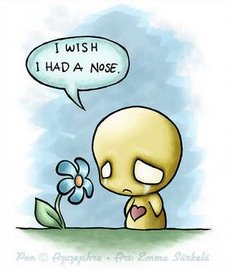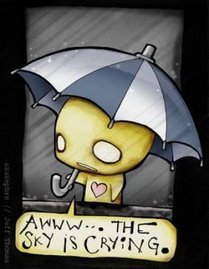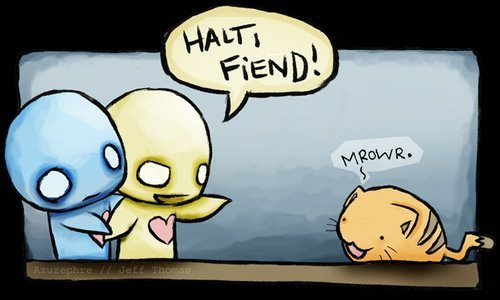Our class is doing literature circles for the second chapter of Woman Warrior, White Tiger. The role I chose was lexicographer, someone who looks up definitions of words we may not know. (Definitions are from http://dictionary.reference.com/) I didn't separate the posts, so this is just all the vocab I looked up.
-alighted
To settle or stay after descending.
Page 19: She was combing her hair one morning when a white crane alighted outside her window.
-ideograph
A character or symbol representing an idea or a thing without expressing the pronunciation of a particular word or words for it.
Page 20: In the brush drawings it looks like the ideograph for "human," two black wings.
-opaque
Not transparent or translucent; impenetrable to light; not allowing light to pass through.
Page 20: The bird would cross the sun and lift into the mountains (which look like the ideograph “mountain”), there parting the mist briefly that swirled opaque again.
-timberline
The elevation in a mountainous region above which trees do not grow.
Page 24: I walked in the direction from which we had come, and when I reached the timberline, I collected wood broken from the cherry tree, the peony, and the walnut, which is the tree of life.
-self-immolation
Voluntary sacrifice or denial of oneself, as for an ideal or another person.
Page 28: I had met a rabbit who taught me about self-immolation and how to speed up transmigration: one does not have to become worms first but can change directly into a human being.
-quarries
Page 29: In quarries I could see its strata, the dragon’s veins and muscles; the minerals, its teeth and bones.
-strata
A layer of tissue.
Page 29: In quarries I could see its strata, the dragon’s veins and muscles; the minerals, its teeth and bones.
-tooled
To form, work, or decorate with a tool.
Page 35: The saddle was just my size with tigers and dragons tooled in swirls.
-culled
To pick out from others; select.
Page 36: I accepted all the gifts- -though I could not possibly carry them with me, and culled for travel only a small copper cooking bowl.
-relinquished
To let go; surrender.
Page 36: The villagers relinquished their real gifts to me- their sons.
-abreast
Side by side; beside each other in a line
Page 37: Often I walked beside my horse to travel abreast of my army.
-fiefdoms
The estate or domain of a feudal lord.
Page 37: When I won over a goodly number of fighters, I built up my army enough to attack fiefdoms and to pursue the enemies I had seen in the water gourd.
-palanquins
A covered litter carried on poles on the shoulders of four or more bearers, formerly used in eastern
Page 38: They had climbed out of their palanquins to watch their husband fight me, and now they were holding each other weeping.
-gestation
The period of development in the uterus from conception until birth; pregnancy.
Page 39: As a fat man, I walked with the foot soldiers so as not to jounce the gestation.
-palpable
Capable of being touched or felt; tangible.
Page 41: The leader stared at the palpable sword swishing unclutched at his men, then laughed out loud.
-inaugurated
To induct into office with formal ceremonies.
Page 42: We beheaded him, cleaned out the place, and inaugurated the peasant who would begin the new order.
- accosted
To approach and speak to boldly or aggressively, as with a demand or request.
Page 43: When no one accosted me, I sheathed the swords and walked about like a guest until I found the baron.
-reprive
To postpone or cancel the punishment of.
Page 44: there was one last-minute reprive of a bodyguard when a witness shouted testimony just as the vise was pinching blood.
-filiality
The relation or attitude of a child to a parent.
Page 45: From the words on my back, and how they were fulfilled, the villagers would make a legend about my perfect filiality.
-deigned
To condescend to give or grant.
Page 48: The boss never deigned to answer.
-opulent
Richly supplied; abundant or plentiful.
Page 49: He leaned back in his leather chair, his bossy stomach opulent.
-wont
Custom; habit; practice.
Page 49: Surely, the eighty pole fighters, though unseen, would follow me and lead me and protect me, as is the wont of ancestors.
-anthropology
The science that deals with the origins, physical and cultural development, biological characteristics, and social customs and beliefs of humankind.
Page 52: I read in an anthropology book that Chinese say, “Girls are necessary too”; I have never heard the Chinese I know to make this concession.
-concession
The thing or point yielded.
Page 53: I read in an anthropology book that Chinese say, “Girls are necessary too”; I have never heard the Chinese I know to make this concession.







